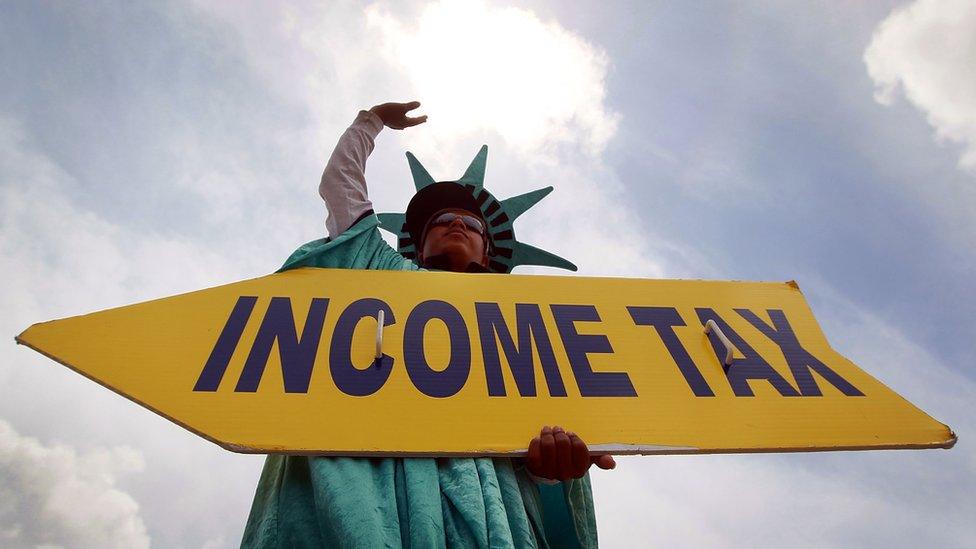Trump and trade: A radical agenda?
- Published
US election 2016 result: Donald Trump's victory speech in 120 seconds
At his victory rally in New York US president-elect Donald Trump promised "great, great relationships" with other nations.
But there is a mismatch between those soothing words and the aggressive trade policies laid out during the campaign - which included harsh tariffs on China and tearing up existing agreements.
It is hard to know if Mr Trump will follow up on his threats, but they have a combustive potential.
And trade is one area where the president has freedom to act without the approval of lawmakers in Congress.
Five questions on economy for Trump
UK businesses react to Trump's win
President Trump: All hat, now where are the cattle?
So what did we learn during the campaign about Mr Trump's views on trade? Well, you can find a summary of his policies, external on his campaign website, but here's a quick tour.
China shock
Perhaps his most radical idea is to impose hefty tariffs on Chinese-made goods, if China does not reform its trade relations with the US.
Mr Trump has floated the idea of a swingeing 45% tariff on Chinese imports.
Donald Trump has expressed forthright views on America's trade with the rest of the world
In a big economic policy speech in June he told workers at a metal processing plant that China had "cheated on its currency, added another trillion dollars to our trade deficit and stole hundreds of billions of dollars in our intellectual property".
During that speech he reminded workers that President Reagan had imposed tariffs of 45% on Japanese motorcycles and 100% on computer chips.
If Mr Trump's threat crystallised it would supply a shock to the US economy as China is an important supplier of many goods.
Take mobile devices for example. China supplies three-quarters of the phones imported into the US and it supplies almost all laptop and tablet computers.
Nafta warning
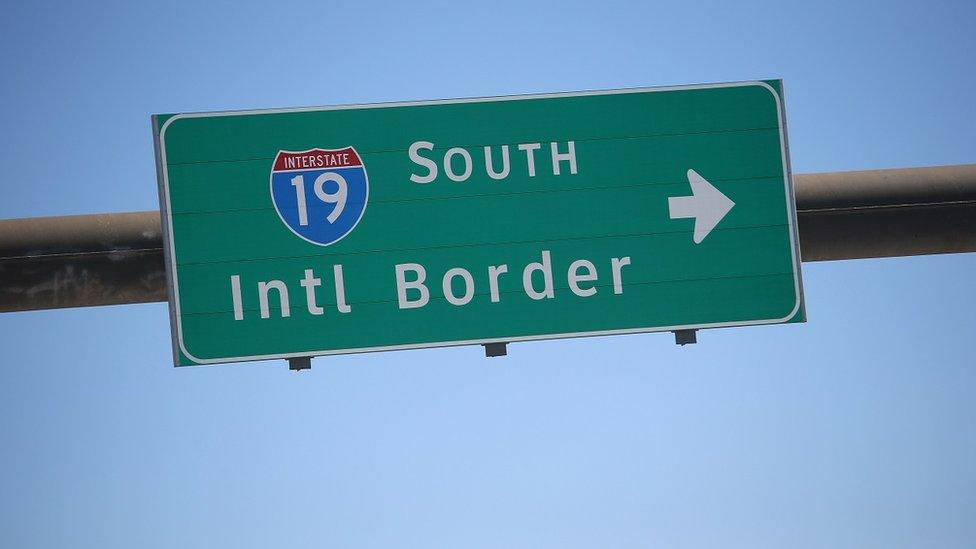
Nafta was introduced to reduce tariffs between the US, Mexico and Canada
Mr Trump has also been scathing about the North American Free Trade Agreement (Nafta).
Introduced in 1994 it greatly reduced, and in some cases eliminated altogether, tariffs for trade between the US and its two immediate neighbours, Mexico and Canada.
"Nafta was the worst trade deal in the history of this country," Mr Trump said in June.
He blames the deal for the loss of thousands of US manufacturing jobs and wants to reverse that by renegotiating the terms of the deal.
If Mexico and Canada do not agree to the new terms, Mr Trump has threatened to withdraw from the agreement altogether.
RIP TPP and TTIP?
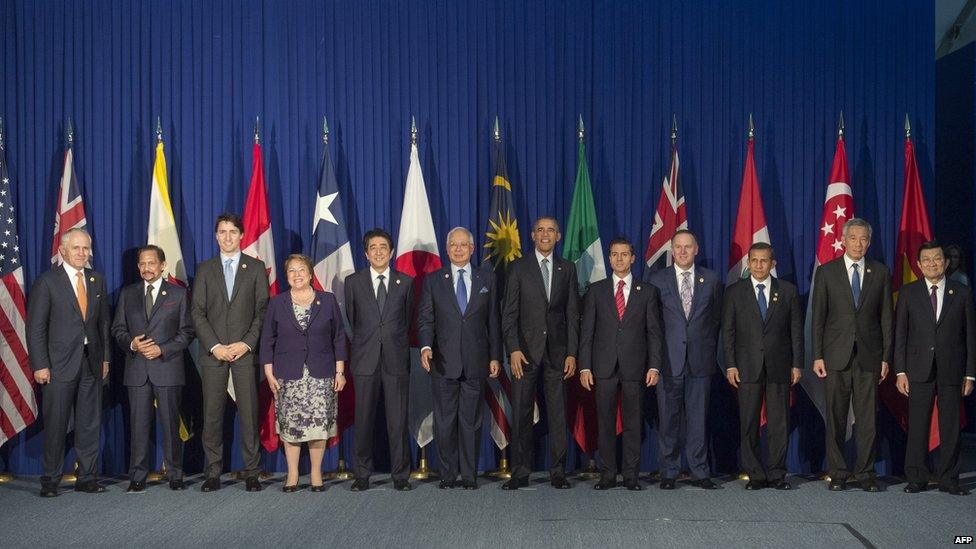
The US-led Trans-Pacific Partnership (TPP) pact involves 12 countries
In February, after five years of work, the US and 11 other nations signed up to the Trans-Pacific Partnership (TPP), one of the biggest multinational trade deals ever.
That agreement now looks dead as Mr Trump has called it a "horrible deal" and said that he would block it.
The deal involves 12 nations from around the Pacific Rim, and was partly designed to counter the growing economic power of China.
However, Mr Trump claims that trade with those nations had already cost the US two million jobs - with the manufacturing of cars and car parts particularly suffering.
A lot of work has also gone into a new trade deal between the US and the European Union.
Since 2013 the two sides have been negotiating the Trans-Atlantic Trade and Investment Partnership or TTIP, aimed at removing or reducing trade barriers.
That deal has faced opposition in Europe and now, with a US administration that is sceptical over trade deals, looks even less likely to reach fruition.
An existing deal under threat is the 2011 free trade agreement with South Korea.
According to figures quoted on Mr Trump's campaign website, the deal has cost 100,000 jobs and has not resulted in any increase in US exports to South Korea.
'Not idle threats'
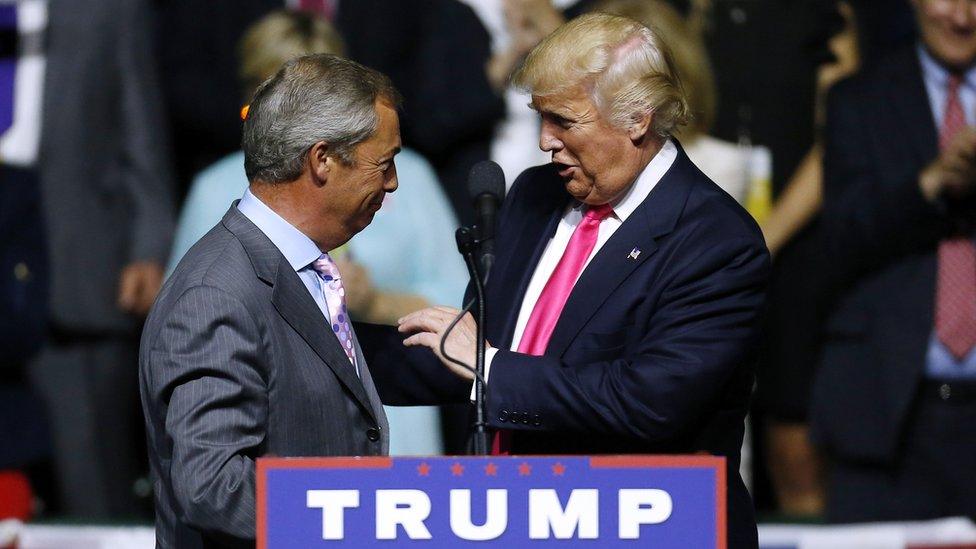
Mr Trump backed Brexit and in turn received support from Nigel Farage, one of the chief campaigners for the UK to leave the EU
While many nations might have their trade deals torn up, the UK might well be looked on favourably by the Trump administration.
The president-elect was a supporter of the UK leaving the European Union and last month his trade adviser Dan DiMicco told the BBC that negotiating a new trade deal with the UK would be "one of the first things" that his trade officials would do.
Mr DiMicco also said that Mr Trump was serious about his threats over trade: "Things have gotten so bad that we will leave Nafta, WTO [the World Trade Organization] and the Korean Free Trade Agreement if we can't get a fair deal.
"These are not idle threats."
But the WTO has congratulated Mr Trump on his victory and appeared to acknowledge his concerns over jobs.
The WTO is "ready to support the administration to ensure trade is a positive element in a new strategy for development & job creation," tweeted, external director-general Roberto Azevedo.
"It's clear many feel trade isn't working for them. We must address this and ensure trade delivers the widest benefit to the most people," he added, external.
- Published9 November 2016
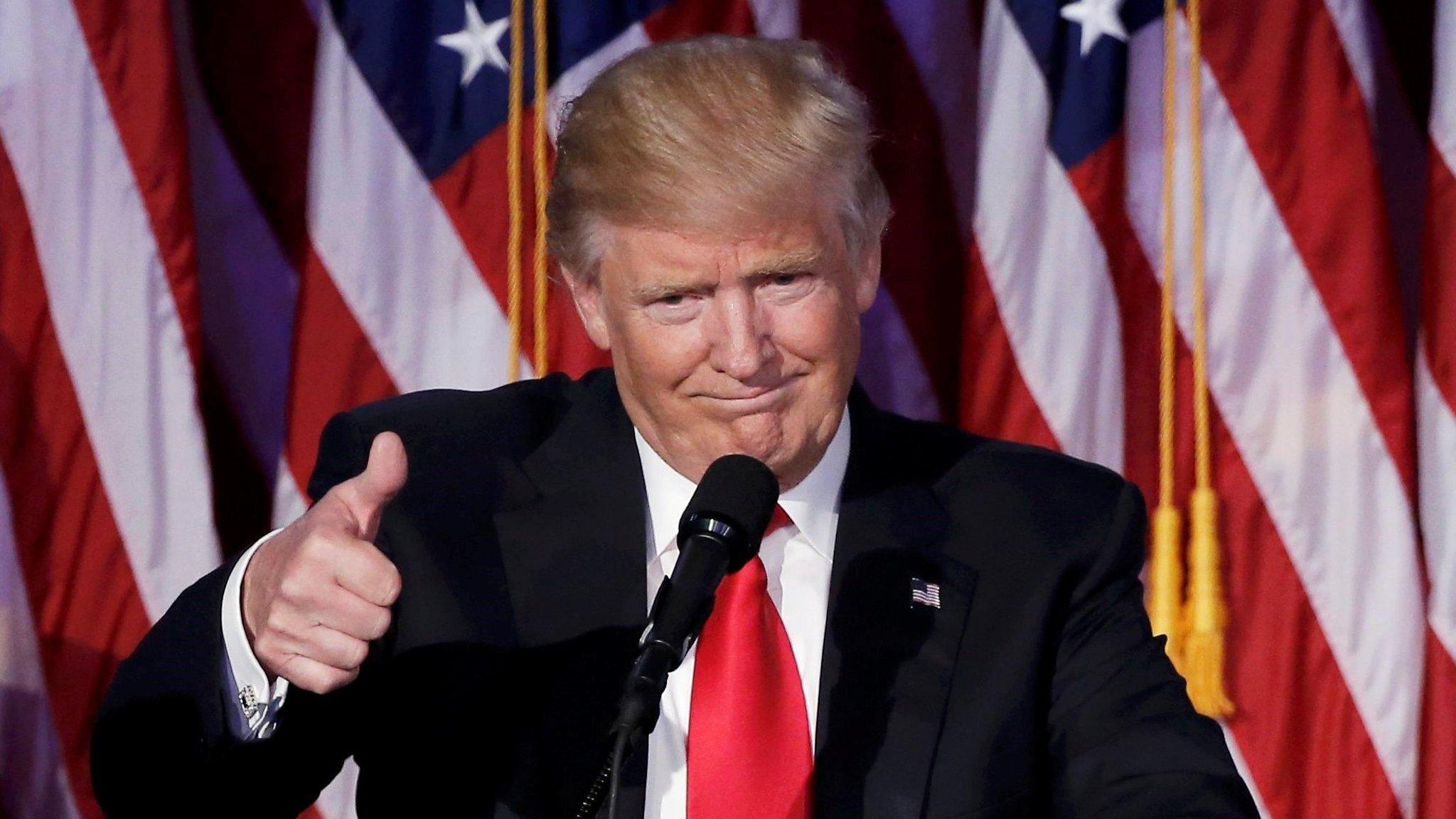
- Published9 November 2016
